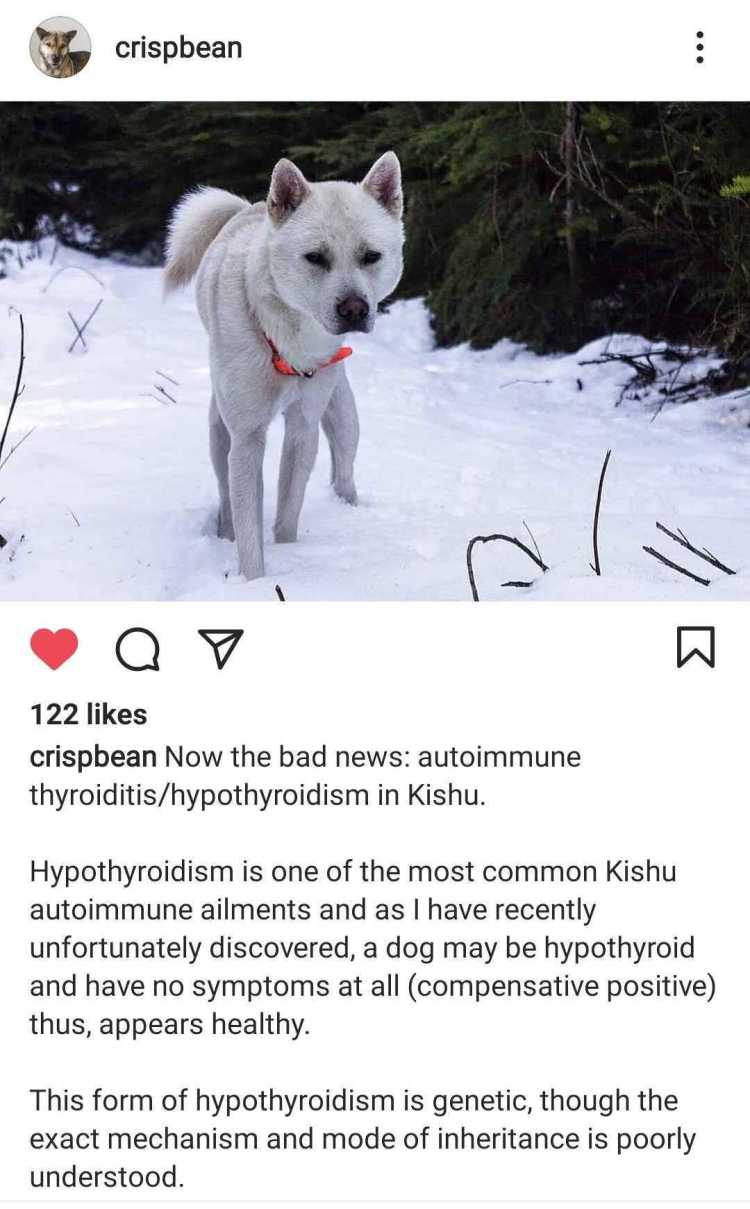If your pup seems to be more tired than usual, or has been having issues with their coat, they might have thyroid disease. Fortunately, hypothyroidism in dogs is easily manageable in most cases - but prompt diagnosis and treatment are essential to preserving their quality of life.
Keep reading to learn more about the causes and symptoms of hypothyroidism in dogs, as well as what you can do to treat the disease.
Table of Contents:
- What is hypothyroidism in dogs?
- What causes hypothyroidism in dogs?
- What are the symptoms of hypothyroidism in dogs?
- How to treat hypothyroidism in dogs
- Key Takeaways
💡 Pro Tip: Pet insurance helps you cover the costs of veterinary treatment if your dog falls ill or gets injured, including the development of thyroid disease and its related ailments.
What is hypothyroidism?
Hypothyroidism is an endocrine disorder in which an underactive thyroid gland produces insufficient hormone levels. This gland is located in the neck and is one of the most important glands in the body because it regulates metabolism.
When the thyroid gland is underactive (“hypo”), it doesn’t produce enough thyroid hormone and the dog’s metabolic rate slows down. If, on the other hand, the thyroid gland is overactive (“hyper”) and it produces too much thyroid hormone, it results in another disease: hyperthyroidism. Hyperthyroidism is quite common in felines, but rare in dogs.
What causes hypothyroidism in dogs?
There are two types of hyperthyroidism in dogs:
- Primary hypothyroidism accounts for over 95% of cases and is typically related to autoimmune disorders. It's caused by one of two diseases:
-
Lymphocytic thyroiditis - Also known as autoimmune thyroiditis, this disease occurs when a dog’s body mistakenly believes its thyroid gland and the hormones it produces as foreign invaders. It initiates an immune response and produces antibodies to attack the cells, leading to inflammation of the thyroid tissue, which then turns into scarring that impairs the proper function of the thyroid gland. Autoimmune thyroiditis causes hypothyroidism in dogs nearly 90% of the time.
-
Idiopathic thyroid gland atrophy - The other 5% of primary hypothyroidism causes normal thyroid tissue to be replaced by fat tissue that deteriorates over time. The term “idiopathic” means that scientists aren’t sure what causes it.

- Secondary hypothyroidism in dogs is caused by other illnesses such as thyroid inflammation, thyroid gland shrinkage, and thyroid cancer. In many of these cases, a large tumor takes up space near the pituitary gland, causing it to malfunction and produce insufficient hormones levels.
What are the symptoms of hypothyroidism in dogs?
Canine hypothyroidism affects virtually every system in the body, including the nervous, circulatory, and gastrointestinal systems. If your dog hasn't been neutered or spayed, the disease can also have detrimental effects on the reproductive system.
Some of the most common clinical signs of hypothyroidism in dogs include:
- Excessive tiredness
- Lethargy
- Mental dullness
- Weight gain
- Depression
- Cold intolerance
- Ear and skin infections
- Coat and skin changes (dry and dull hair, excessive shedding, hair loss, excessive dandruff, hyperpigmented skin)
- High cholesterol levels
- Slow heart rate
- Excessively long estrus (heat cyle) in unspayed females
- Dysfunction of the larynx (laryngeal paralysis)
In some cases, thyroid disease can also lead to heart and blood vessel problems, seizures, abnormal nerve function, and infertility.
⚠️ Most symptoms of canine thyroid disease do not develop until approximately 70% of the gland has already been damaged, so recognizing the early signs of hypothyroidism is crucial. Routine care and annual vet exams can help detect and diagnose dogs with hypothyroidism sooner than later, minimizing the severity of the condition.

What dog breeds are prone to hypothyroidism?
It appears that some dogs may genetically predisposed to hypothyroidism, as the condition is more common among certain breeds, and medium to large breeds are at more risk compared to smaller breeds.
Dog Breeds Prone to Hypothyroidism:
- Afghan Hounds
- Airedale Terriers
- Boxers
- Chinese Shar-Peis
- Chow Chows
- Cocker Spaniels
- Dachshunds
- Doberman Pinschers
- English Bulldogs
- Golden Retrievers
- Great Danes
- Irish Setters
- Kishu Inus
- Miniature Schnauzers
- Poodles
Both male and females can acquire canine hypothyroidism. Neutered and spayed dogs have also been shown to be at an increased risk. However, the benefits of neutering/spaying might outweigh the possible risk.
Diagnosing hypothyroidism in dogs
The good news is that this thyroid condition can be easily diagnosed and managed throughout your dog's life. Your vet will ask you questions related to your dog’s clinical signs and medical history, conduct a physical examination, and run a blood test to check the thyroid hormone levels called triiodothyronine (T3) and thyroxine (T4).
Additional tests might be necessary to rule out other medical conditions and evaluate the dog’s overall health.
How to treat hypothyroidism in dogs
Hypothyroidism is treatable with thyroid replacement therapy. The medication is called levothyroxine or L-thyroxine, and your dog will need to take for the rest of its life.
After prescribing thyroid hormone replacemen, your veterinarian will ask you to come back in a few weeks for a follow-up blood test to ensure that your dog’s thyroid hormone levels are within the normal range. Once hormone levels are stable, the vet will recheck their bloodwork every six to 12 months because your dog’s tolerance of the thyroid hormone replacement medications might change over time. In that case, the dose will need to be adjusted.
Administering the correct dose is crucial because if your pup takes too much of thyroid medication, they might develop clinical signs of hyperthyroidism. Common signs of an overactive thyroid function include lack of sleep, increased water consumption, hyperactivity, and lack of appetite.
💡 Pro Tip: Routine vet visits, laboratory tests, and prescription medications can add up quickly, but dog health insurance is designed to help cover these costs to alleviate the financial burden sometimes required to give your pup the essential care they deserve.
If hypothyroidism is left untreated, your four-legged friend will continue feeling poorly and their symptoms will worsen. Eventually, more severe complications will develop, which might lead to death.
Hypothyroidism in dogs diet
Diet can offer natural remedies for canine thyroid disease by alleviating some of the symptoms your pup may experience day-to-day. The best diet for hypothyroidism in dogs should contain balanced levels of:
- Probiotics
- Iodine
- Amino acids
- Antioxidants
- An adequate amount of calories to maintain a healthy weight
Some examples of food that may help support dogs’ thyroid conditions include spinach, broccoli, carrots, celery, and green beans. However, you should always follow your vet's recommendations regarding your dog’s nutrition.
Hypothyroidism in dogs treatment cost
Hypothyroidism is relatively inexpensive to diagnose and manage compared to other conditions, such as Cushing's disease. Diagnostic testing usually costs from $50 to $150, and expenses for monthly medication run between $20 and $50. Annual re-testing to ensure adequate treatment is in the $50-$100 range.
Altogether, the cost of treatment for hypothyroidism in dogs may be around $850 in the first year, and $300-$700 for each additional year of your dog's life.
💡 Pro Tip: Depending on the pet insurance plan, policyholders can be reimbursed for up to 100% of these covered expenses after meeting their deductible. Although there is no provider that offers pet insurance for pre-existing conditions, it’s never too late to purchase pet insurance for older pets so you’ll know they’ll be protected for any future, unrelated health condition that may arise.
Outlook and ongoing care
Although hypothyroidism is not a life-threatening condition, it can have a very negative impact on your pup's quality of life, which is why it’s important to see your vet for a definitive diagnosis of thyroid disease and treatment plan.
With successful treatment, your dog’s outlook is excellent. As long as they take the medication regularly per the vet’s instructions, your pup can live a normal life without any clinical signs.
Your dog should look and feel better within a couple of weeks after starting treatment. They might lose more fur at the beginning but it should begin to regrow within four to six weeks. They should be back to normal within six months.
Key Takeaways
- Hypothyroidism in dogs refers to an underactive thyroid gland that produces insufficient hormone levels, resulting in symptoms such as low energy, fur loss, and weight gain.
- Treatment of hypothyroidism in dogs involves ongoing hormone replacement therapy.
- Pet insurance can help offset the cost of continuous care to minimize the financial burden of essential veterinary care.
- If you have any questions about your pet's health, get in touch with your vet.
